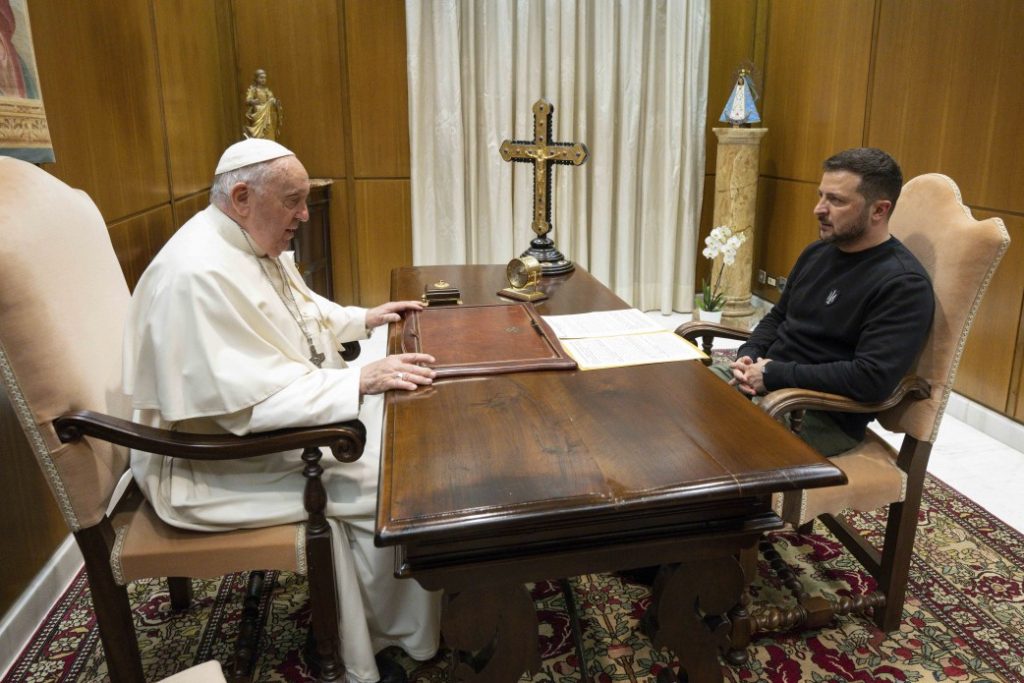
This series explores how Pope Francis as the head of the Catholic Church and the Vatican deals with the Russia-Ukraine war.
Many observers call the Pope’s approach ambiguous.
On the one hand, the Catholic Church has provided humanitarian support to Ukrainians affected by the war from its very beginning in 2014. For example, from 2016 to 2018 the Catholic Church raised almost €16 million through the “Pope for Ukraine” initiative and funded several programs for internally displaced people and those living in the combat zone. Such programs provided mobile health clinics, food vouchers, and psychological help for adults and minors; and repaired and insulated houses damaged by the war. Since the beginning of Russia’s full-scale invasion, Pope Francis has made several public speeches and gestures in support of Ukrainian victims of the war and has tried to advance humanitarian efforts—including attempts to facilitate the return to Ukraine of Ukrainian children deported by Russia—and to highlight the moral catastrophe of the Bucha massacre and similar crimes.
On the other hand, the Pope and the Vatican are constantly criticized for the inability to make a clear and loud distinction between the aggressor and the victim of the war. Francis’s envoy Cardinal Matteo Zuppi conducted a meeting with Russia’s Commissioner for Children’s Rights, Maria Lvova-Belova, who is charged as a war criminal by the International Criminal Court. The meeting was broadly covered by Russian media dedicated to spreading Russian propaganda. In addition, commentators criticize the Vatican’s lack of expertise in the Eastern Europe and post-Soviet space, manifested, for example, in controversial statements about “the great Russia of Catherine II and Peter I,” which were interpreted by many as praising Russian imperialism at perhaps the most inappropriate time for such praises.
Series authors discuss the Pope’s approach to the war and, more broadly, his vision of just war and just peace from theological, historical, political, and inter-Catholic perspectives. Specifically, they elaborate on the nature of the Vatican’s neutrality, conflicts between Catholic ethics and the Vatican’s politics, the influence of the war on the Vatican’s Ostpolitik, and the possible contributions of Catholic theology to dealing with war crimes committed in Ukraine, including potential ecocide.
Posts in the series:
Regina Elsner. Hybrid Neutrality as the Deadlock: The Pope’s Approach to the Russia-Ukraine War
Pavlo Smytsnyuk. Pope Francis’s Humanitarian Diplomacy for Ukraine: Between Peacemaking and Geopolitics
Thomas Mark Németh. The Ukrainian Greek Catholic Church, Pope Francis, and Russia’s War Against Ukraine
